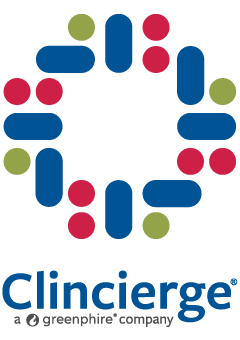In 2018, the FDA updated its guidelines for reimbursing patients who participate in a clinical trial. The document reiterates that the payment of patients for their participation in a study is an allowable part of the recruitment process. With guidance from an Institutional Review Board (IRB), clinical trial sponsors determine adequate payment levels for participants and include these amounts in the study protocols. Adequately reimbursing patients for their participation is critical to improving access, enrollment, and retention in rare disease clinical trials.
Patients facing a rare disease diagnosis often find that participation in a clinical trial is the only course of treatment available to them. Of the over 7,000 known rare diseases, only 5% currently have a treatment option approved by the United States Food and Drug Administration (FDA).
Overcoming Obstacles and Improving Access to Rare Disease Clinical Trials
These patients must determine if it is financially feasible to participate in a study. They weigh the burden of expenses such as time off work, travel to and from the trial site, lodging and meal costs while away, and other incidental costs associated with participation in the clinical trial.
However, for clinical trial sponsors, it is critical to retain the participants they have recruited for their rare disease study. If patients leave the study before completion, the sponsor loses the vital scientific data collected throughout the trial and the time, money, and resources invested in the patient. Many trials remain incomplete or finish over budget and later than anticipated.
In a prior blog, we shared several types of patient payment options and how to determine the best option(s) for your clinical trial. While clinical trial sponsors need to know what patient payment options are available, it is even more critical to understand the preferred reimbursement options for the patients, specifically rare disease patients.
Learning About the Patient and Caregiver Experience
Clincierge recently conducted a five-day online qualitative study of rare disease clinical trial patients and caregivers. Our goal was to explore their emotional, logistical, and practical experiences of traveling to and from clinical sites, with the intention of these findings to improve the patient experience and our services continually. Patients and caregivers provided rich and insightful feedback about the many emotional, logistical, and financial burdens they face.
Many patients and caregivers stated that the financial challenges related to participation are a considerable burden, often resulting in their decision not to participate in a clinical trial. We explore additional aspects of the financial barriers to clinical trial participation below.
Key Patient and Caregiver Insights
- Most respondents reported they do not have the out-of-pocket money needed to participate in a clinical trial. The cost of travel, hotel stays, meals, and other incidentals often make clinical trial participation impossible.
- The paperwork involved with trial participation reimbursements is often complicated, and in the patient’s opinion, payments usually take too long. Patients and caregivers both reported waiting several weeks and even months to be reimbursed for expenses related to travel and visits to clinical sites.
- They stressed the importance of being reimbursed quickly, with most opting for a prepaid debit card instead of a check or direct deposit into a bank account.
- Some respondents expressed concern over using patient reimbursement portals, citing limited access to technology and limited experience levels.
- Several respondents said it would have been highly beneficial to have a specific contact person assist them with the reimbursement process.
The majority of patients and caregivers stated that a single point of contact was critical to helping them navigate the clinical trial logistics and the reimbursement processes involved. When clinical trial sponsors partner with a patient support services provider, the clinical trial participant works with a patient coordinator in their time zone, who speaks their language and understands the nuances of their culture. The coordinator supports the patient for the trial duration, from initial consent and enrollment through completion, assisting with reimbursements, providing logistical support, answering questions, and acting as an advocate on their behalf. Clinical trial recruitment and retention rates improve immensely when patients and their caregivers feel prepared, supported, and empowered throughout their journey.


